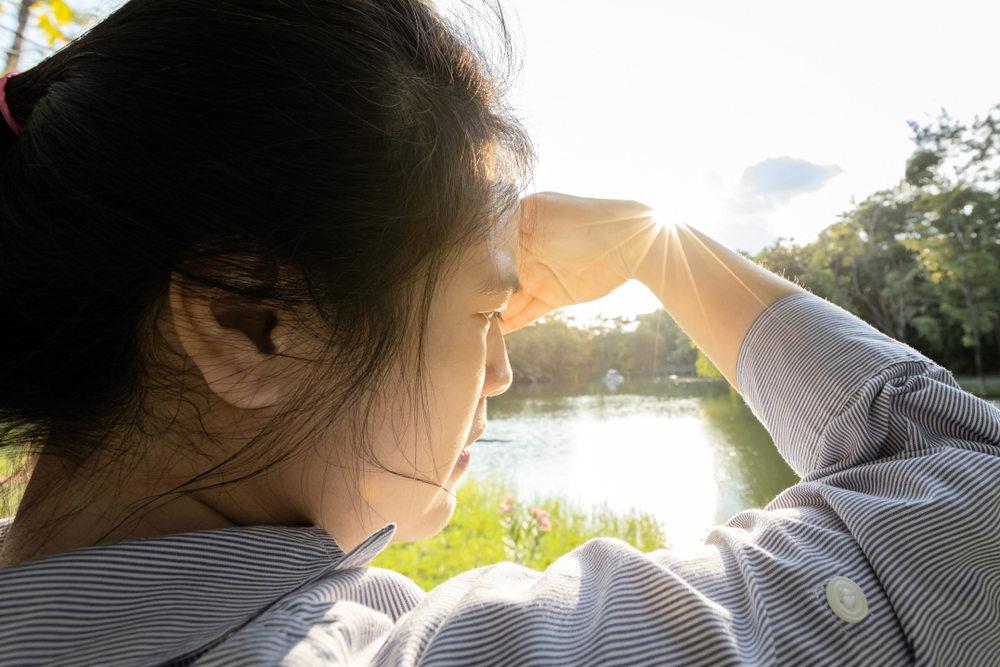
The Harmful Effects of UV Light on Eye Health: What You Need to Know
Ultraviolet (UV) light is a type of electromagnetic radiation that is invisible to the human eye, but it can have a significant impact on your eye health. UV light is present in sunlight, and it can also be emitted by certain artificial light sources. While moderate exposure to UV light can be beneficial, prolonged or excessive exposure can lead to a variety of eye problems, ranging from minor
irritation to serious, sight-threatening conditions.
Common Eye Conditions Caused by UV Light Exposure
Exposure to UV light can lead to a variety of eye conditions, some of which can have severe and lasting consequences. Here are some of the most common eye conditions associated with UV light exposure:
• Photokeratitis: This is a painful, temporary condition caused by excessive exposure to UV light, often from sources like welding arcs or reflections from snow. It can cause symptoms such as redness, pain, and a gritty sensation in the eyes.
• Pterygium: A pterygium is a growth of the conjunctiva onto the cornea. This condition is often associated with long-term exposure to UV light and can lead to vision problems if left untreated.
• Cataracts: Cataracts are a clouding of the eye's natural lens, which can impair vision. While there are many potential causes of cataracts, including age and genetics, prolonged UV light exposure is a significant risk factor.
• Macular Degeneration: This is a leading cause of vision loss in older adults, and it is often linked to long-term exposure to UV light. Macular degeneration can lead to a gradual loss of central vision, making it difficult to perform everyday tasks like reading or driving.
• Pinguecula: A pinguecula is a yellowish, raised growth on the conjunctiva, usually on the side of the eye closest to the nose. While not directly vision-threatening, a pinguecula can cause irritation and discomfort.
Understanding the potential risks of UV light exposure is the first step in protecting your eyes and maintaining optimal eye health.
The Importance of Protecting Your Eyes from UV Light
Protecting your eyes from UV light is crucial for preserving your vision and preventing long-term eye damage. UV light can penetrate deep into the eye, causing cumulative damage over time. By taking proactive steps to shield your eyes, you can reduce your risk of developing the eye conditions mentioned above and enjoy healthier, more comfortable vision.
One of the most effective ways to protect your eyes is by wearing high-quality, UV-blocking sunglasses or prescription lenses. These specialized lenses are designed to filter out a significant portion of the harmful UV rays, shielding your eyes from exposure. It's important to choose sunglasses or lenses that provide 100% UV protection, as this ensures the maximum level of protection for your eyes.
In addition to wearing UV-blocking eyewear, there are other steps you can take to safeguard your eyes from the sun's damaging rays:
· Seek shade whenever possible, especially during the peak UV hours between 10 a.m. and 4 p.m.
· Wear a wide-brimmed hat or cap to provide additional shielding for your eyes and the delicate skin around them.
· Limit your time in direct sunlight, particularly during activities like skiing, boating, or beach-going, where UV exposure can be especially intense.
· Be mindful of reflective surfaces, such as water, snow, and sand, which can amplify the effects of UV light.
By making eye protection a priority, you can take proactive steps to preserve your vision and reduce your risk of developing UV-related eye conditions.
Choosing the Right Lenses for Maximum UV Protection
When it comes to protecting your eyes from UV light, the type of lenses you choose is crucial. Not all sunglasses or prescription lenses are created equal, and it's important to understand the different levels of UV protection they offer. The best lenses for maximum UV protection are those that block 100% of both UVA and UVB rays. These lenses are designed to filter out the full spectrum of harmful UV radiation, providing the highest level of protection for your eyes.
In addition to the UV protection rating, there are other factors to consider when selecting the right lenses:
• Lens Material: Polycarbonate and high-index plastic lenses are excellent choices, as they offer superior impact resistance and UV protection compared to traditional glass lenses.
• Lens Coatings: Anti-reflective coatings can help reduce glare and improve visual clarity, while scratch-resistant coatings can extend the lifespan of your lenses.
By investing in high-quality, UV-blocking lenses, you can safeguard your eyes and enjoy clearer, more comfortable vision in any
lighting condition.
The Role of Regular Eye Exams in Maintaining Eye Health
Regular eye exams are an essential component of maintaining long-term eye health and protecting your vision from the harmful effects of UV light exposure. During an eye exam, your optometrist can assess the overall health of your eyes, identify any existing or potential issues, and provide personalized recommendations for maintaining optimal eye health.
Regular eye exams can help identify the early signs of UV-related eye conditions, such as cataracts, macular degeneration, and pterygium, allowing for timely intervention and treatment. Additionally, your optometrist can ensure that your prescription for corrective lenses, whether for eyeglasses or contact lenses, is up-to-date and providing the best possible vision correction.
Taking Proactive Steps to Protect Your Eyes from UV Light
Protecting your eyes from the harmful effects of UV light is essential for maintaining long-term eye health and preserving your vision. By understanding the common eye conditions associated with UV exposure, choosing the right lenses for maximum protection, and making regular eye exams a priority, you can take proactive steps to safeguard your eyes and enjoy clearer, more comfortable vision throughout your life.
To schedule a comprehensive eye exam and learn more about protecting your eyes from UV light, contact Park Optometry at our office in Ukiah, California, or call (707) 313-8019 to book an appointment today.




